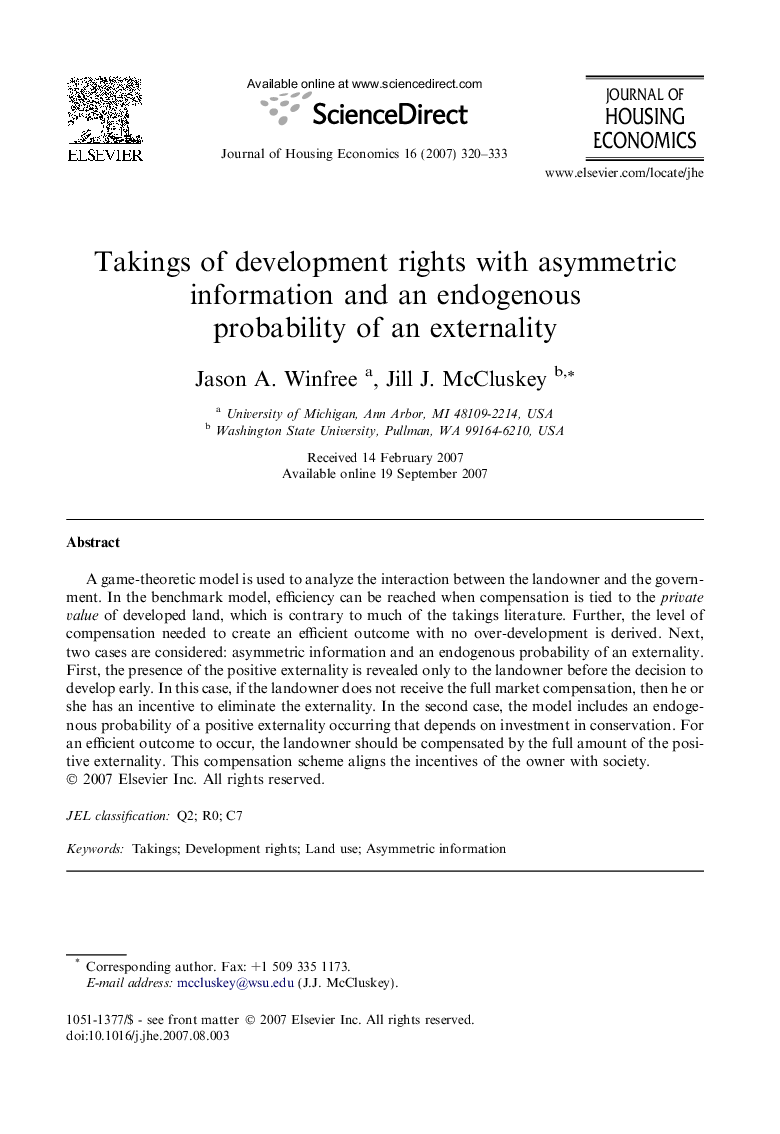| Article ID | Journal | Published Year | Pages | File Type |
|---|---|---|---|---|
| 962853 | Journal of Housing Economics | 2007 | 14 Pages |
Abstract
A game-theoretic model is used to analyze the interaction between the landowner and the government. In the benchmark model, efficiency can be reached when compensation is tied to the private value of developed land, which is contrary to much of the takings literature. Further, the level of compensation needed to create an efficient outcome with no over-development is derived. Next, two cases are considered: asymmetric information and an endogenous probability of an externality. First, the presence of the positive externality is revealed only to the landowner before the decision to develop early. In this case, if the landowner does not receive the full market compensation, then he or she has an incentive to eliminate the externality. In the second case, the model includes an endogenous probability of a positive externality occurring that depends on investment in conservation. For an efficient outcome to occur, the landowner should be compensated by the full amount of the positive externality. This compensation scheme aligns the incentives of the owner with society.
Related Topics
Social Sciences and Humanities
Economics, Econometrics and Finance
Economics and Econometrics
Authors
Jason A. Winfree, Jill J. McCluskey,
